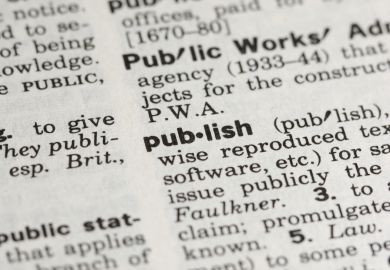A split has opened up between big publishers over how to tackle copyright-infringing articles uploaded to the academic social network ResearchGate.
One group of publishers – Springer Nature, Cambridge University Press and the German medical publisher Thieme – last week struck a deal with ResearchGate that allows academics to upload papers without having them pre-screened to comply with copyright.
This puts it at odds with another group of publishers, which includes Elsevier, that has taken a much more combative stance towards the Berlin-based academic social network and wants it to install such a filtering system.
The Springer Nature group and ResearchGate have agreed to “cooperate in educating users about their rights in relation to copyright-protected content by providing users with more and better information about how and when they may share their journal articles on the network”, according to a joint statement.
ResearchGate “will continue to promptly remove copyright-infringing content when alerted by publishers”, while the publishers “will get better visibility into the usage of new content on the platform that was originally published in their journals”.
A ResearchGate blog post clarifying the deal stresses that it “does not allow them [publishers] to pre-emptively block or filter research that scientists upload to the network”.
“Hence, this solution will make reporting problematic content more straightforward for the publishers, while preserving academic freedom,” it says. “ResearchGate does not expect an extensive amount of content to be reported by participating publishers.”
The deal drew criticism from the Coalition for Responsible Sharing, a group of publishers including Elsevier and Wiley. James Milne, chair of the coalition, said in a statement that “no copyright-infringing content should go public on ResearchGate’s site in the first place. The availability and subsequent removal of unauthorized content is unsustainable and disruptive to researchers who need a simple system that automatically provides clarity on how widely research can be shared.”
On 18 April, two members of the coalition, Elsevier and the American Chemical Society, announced that they had started legal action in Germany to “clarify ResearchGate’s responsibility for copyright infringements on its site”.
Register to continue
Why register?
- Registration is free and only takes a moment
- Once registered, you can read 3 articles a month
- Sign up for our newsletter
Subscribe
Or subscribe for unlimited access to:
- Unlimited access to news, views, insights & reviews
- Digital editions
- Digital access to THE’s university and college rankings analysis
Already registered or a current subscriber?








